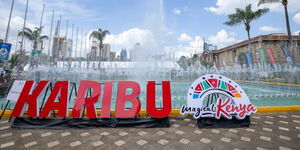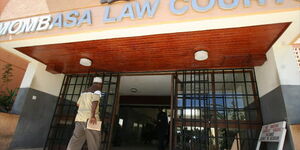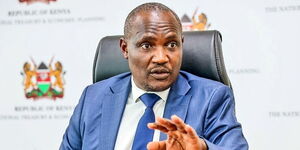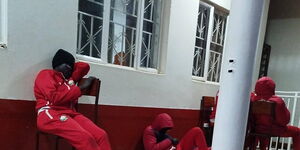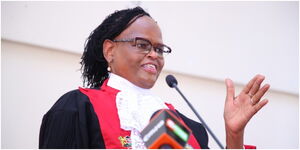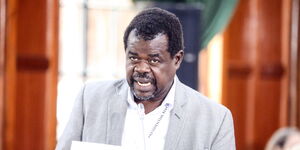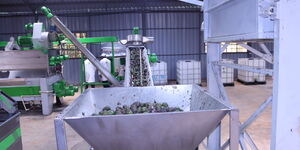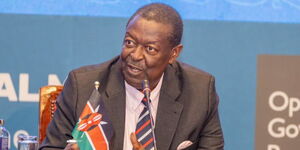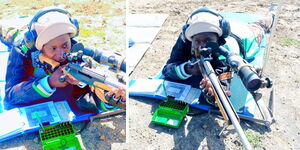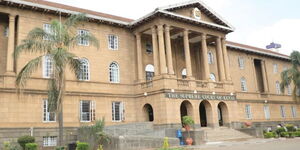President William Ruto is set to facilitate high-end talks between Rwanda and the Democratic Republic of Congo (DRC) on Wednesday, January 29, as he seeks to tame escalating hostilities in the DRC. However, the Chairman of the East African Community (EAC) is in a precarious position over his past comments on the conflict.
President Ruto, on Tuesday, January 28, departed for Dar es Salaam, Tanzania, to attend the Mission 300 Africa Energy Summit. On Sunday, Ruto called for an emergency summit of EAC leaders. He is expected to lead the meeting on the sidelines of the event.
Both Kagame and Tshisekedi have reportedly agreed to attend, but this meeting will not be as easy as it seems or sounds. There are deep underlying conflicts between the various leaders, with Tshisekedi being on record accusing Ruto of siding with Rwanda.
This is the second meeting organised in a space of two months. As the international community watches, Ruto has to arrest the diplomatic impasse between Kigali and Kinshasa, with thousands displaced in Goma over the weekend hoping for lasting peace.
While Kenya's head of state will be a crucial piece in the talks, his baggage, perceived or not, will be difficult to ignore. During the call for a summit, Ruto urged for direct dialogue between the Congolese government and the M23 rebels, a move that has frequently been resisted by the Congolese authorities.
Last year, President Tshisekedi criticised Ruto for taking control of the Nairobi Peace Process, which was initially led by former Kenyan President Uhuru Kenyatta. In a session at the Brookings Institution, Tshisekedi labelled the East African Community-led peace initiative as "poorly managed" and declared it "dead."
He maintained that Kenyatta should continue as the official facilitator but candidly added, "I must confess, President Ruto is supporting Rwanda, and I won't say anything more about that."
On December 15 last year, President Tshisekedi and President Kagame were scheduled to meet to discuss the crisis in eastern DRC. However, the meeting was cancelled due to disagreements over preconditions.
For years, Congo has repeatedly accused Rwanda of backing the M23 rebels, who over the years have destabilised the Eastern DRC—an accusation Kigali denies. This has made the relationship between Kinshasa and Kigali strained.
That is not the only thing in play. Just this month, Kagame launched a scathing attack on Tshisekedi in front of international diplomats in Kigali, saying Tshisekedi is not an elected president. “The person who is causing problems in this situation I am talking about between Rwanda and DRC has never twice been elected. And you know it. This is why I was saying it doesn’t matter the evidence, doesn’t matter facts, doesn’t matter the claim, it is just what you think applies to you for that moment, for your benefit, the rest doesn’t matter," stated President Kagame.
The talks will follow days after the M23 rebels said they had seized control of Goma on the Congo-Rwandan border. According to reporting from the VOA, the Congolese government said Monday that Rwandan government troops are in Goma. Kigali is yet to respond to these claims.
“We are all in agreement that now more than ever it is an existential issue, not just for the people of eastern DRC, but for this region,” Ruto said during a press briefing, referring to the Democratic Republic of Congo, also called Congo. “The situation in eastern DRC now demands our collective focus.”
In 2012, the rebels took over Goma, forcing an international response that pressured Kagame to back down. But Kigali’s focus on the mineral-rich region next door, home to the remnants of the militias that committed the 1994 genocide, remains.
Kigali has always argued its interest in the region is to protect its borders.
The conflict in the DRC has been ongoing since 1996, resulting in an estimated six million deaths, according to the Global Conflict Tracker. This staggering toll includes fatalities from direct violence, disease, and malnutrition.

